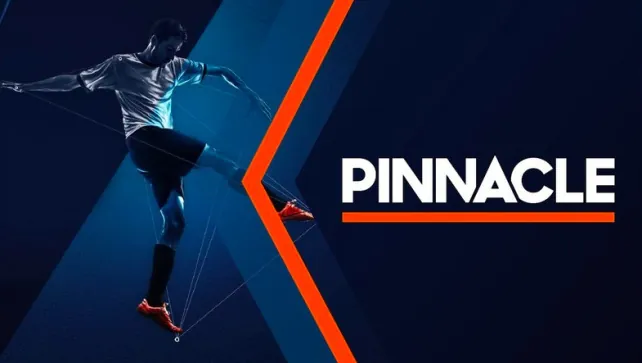Welcome to the sixth edition of the Locker Room Labs Sports Technology Spotlight. In this series, we sit down with industry partners and experts to discuss the evolving world of sports tech including the incredible innovations being developed in the space. The next professional we interviewed is Joseph Clements, Principal Sports Betting Consultant at Quant Solutions LLC. Joseph discusses his perspective on topics that are trending in sports betting, technology, and more.
Social media is the main form of marketing communication for most platforms. How do you think the rise of social media platforms has impacted the marketing and user acquisition strategies for sportsbook apps?
The landscape of sportsbook marketing and user acquisition has undergone a significant transformation over the years. Traditionally, affiliate programs with content websites were a primary method for driving player sign-ups. These websites provided value through in-depth content, betting tips, and strategic insights that attracted bettors who were then referred to sportsbooks, generating a commission for the affiliates. Such affiliate relationships still account for 10-20% of a sportsbook’s user base, indicating the enduring effectiveness of this strategy.
Additionally, in the pre-digital era, street agents played a vital role in pulling in local players. These agents worked on the ground, using their networks and personal relationships to recruit players, which added a human touch to the business. Their localized knowledge and personal trust were crucial in markets where the online presence was not as prevalent. However, the rise of social media platforms has shifted the focus. Now, the emphasis is on leveraging the power of influencers and the direct engagement that platforms like TikTok, Instagram, and Twitter offer. This shift has led to innovative approaches such as Penn National Gaming‘s acquisition of Barstool Sports, which has demonstrated the value of owning a marketing machine with a loyal fanbase over traditional reach-based advertising. The effectiveness of social media is highlighted by companies like Playline, which drastically reduced customer acquisition costs by building a network of almost 500 influencers and community managers, engaging with their audience through these influential figures rather than through direct advertising. Influencer marketing adds a layer of authenticity and personal endorsement that traditional affiliate marketing may lack, resonating with a new generation of bettors.
Moreover, there is a strategic advantage in targeting younger demographics on social media, as seen with the content that subtly promotes betting to this impressionable audience, all while adhering to advertising guidelines. From my professional experience, including my time at Pinnacle Sports, the integration of affiliate programs with direct, influencer-driven social media campaigns has provided a balanced approach. While the affiliate programs ensured a steady flow of knowledgeable bettors, social media strategies allowed us to tap into a broader market, particularly in building our golf betting product. The combination of these methods has proven to be symbiotic, maximizing reach and user acquisition while maintaining cost-effectiveness.
As a leader in sports betting technology, how do you approach the balance between innovation and ensuring compliance with industry regulations and standards?
In balancing the drive for technological innovation with the need for compliance in the sports betting industry, addressing the unique challenges posed by the US-regulated market is crucial. The structure of the market, where each state effectively operates as its own sports betting ecosystem, can foster monopolistic conditions that favor established operators and platform data providers. This scenario is compounded by the substantial costs associated with market entry due to regulatory and logistical expenses, which can leave significant portions of offshore and regulated markets underserved.
Given these conditions, our approach emphasizes flexibility and strategic planning. We aim to leverage adaptive technologies that can navigate the patchwork of state regulations. We consider the use of Free-to-Play (F2P) games as a viable entry strategy to build a user base and establish market presence in a cost-effective and compliant way. Once a foothold is established, we can then explore the transition to Real Money Gaming (RMG) by obtaining the necessary licenses or monetizing through affiliate marketing, which remains lucrative in this sector.
Additionally, we focus on technological innovations like blockchain, which can introduce a new level of transparency and security. Such technologies have the potential to democratize the sports betting landscape by offering alternative methods of entry for new players and reducing the power of monopolies. We must also acknowledge the promise of Artificial Intelligence (AI) in enhancing betting strategies and managing risks. AI can provide bettors with valuable insights and optimize betting behavior, but it also plays a critical role in identifying and mitigating problematic betting patterns to promote responsible gambling.
In summary, our approach is twofold: we pursue innovation with an adaptable toolkit designed for the fragmented US market while simultaneously advocating for a regulatory environment that encourages fair competition and services the entire spectrum of the market. We strive to maintain the integrity of sports betting through stringent data governance and compliance to protect users and uphold the industry’s ethical standards.
Live betting has become a huge topic in the industry. How do you foresee the integration of real-time, in-play betting features evolving, and what impact will it have on the sports betting experience?
Incorporating live betting into sportsbook platforms significantly enhances user engagement. As players remain logged into their accounts, their attention is consistently engaged with ongoing events, promoting an active and dynamic betting environment. This sustained engagement not only increases betting volume on the current event but also encourages crossover betting activity as bettors explore other live events and markets offered on the platform.
The integration of buy-out options—also known as cash-out features—is a strategic addition to the live betting experience. It allows players the flexibility to exit a bet before the conclusion of an event, which can be an attractive option during a live game’s unpredictability. This feature benefits the operator by essentially charging the vigorish (vig) or margin twice; first when the bettor places their initial wager and again when they opt for the buy-out, contributing to the sportsbook’s revenue.
The expansion of live betting markets beyond traditional bets like the winner, point spreads, and totals is also a key trend. Sportsbooks are scaling up their in-play offerings to include a wider array of bet options, such as betting on specific plays, player performance, and in-game events that go beyond standard outcomes. This granularity not only enriches the betting experience but keeps the bettors continuously engaged, potentially leading to higher volumes of wagers placed across a diverse range of sports and events.
As live betting continues to grow, the future of sports betting is expected to see an even more extensive suite of real-time wagering options, leveraging technology to offer instantaneous bets and updates. With the advent of more sophisticated data analytics and AI, the potential for personalized betting experiences and recommendations based on real-time sports event data will likely become a reality, further enhancing the bettor’s engagement and the overall sports betting ecosystem.

Innovation allows the industry to thrive. How do you see the rise of peer-to-peer betting platforms influencing the traditional model of sportsbook apps and betting exchanges?
The rise of peer-to-peer (P2P) betting platforms is poised to have a significant influence on the traditional model of sportsbook apps and betting exchanges. These platforms fundamentally alter the dynamic between bettors and the house, shifting towards a model where users can both place and take bets from each other. This change introduces a more communal and interactive aspect to betting, which could attract a new demographic of users who appreciate a more engaged and social gambling experience.
P2P betting platforms like Prophet Exchange, which emerged as the first legal P2P betting exchange in the U.S., allow users to bypass traditional sportsbook margins by setting their odds and betting against each other directly. This can often lead to better odds compared to traditional sportsbooks because the odds are not predetermined by the house but are instead created by the bettors themselves. It democratizes the betting process and can lead to more competitive and fair odds, reflecting the true sentiment and predictions of the betting community.
Additionally, these platforms might offer lower commissions, as seen with Prophet Exchange’s low commission rate of 2%. The increase in the number of available betting markets on such platforms beyond traditional win-lose outcomes also enriches the betting landscape, providing bettors with a broader range of options to engage with.
However, there are challenges that P2P betting platforms face, such as achieving sufficient liquidity to make the markets viable and ensuring regulatory compliance across different jurisdictions. As the market for P2P betting platforms is still relatively nascent in the U.S., these platforms will need to continue to evolve and address these challenges to compete with traditional sportsbook apps and betting exchanges effectively.
In essence, P2P betting platforms represent an innovative shift in the sports betting industry, providing a fresh alternative to traditional betting models and potentially influencing how sports betting is conducted moving forward. The success of platforms like Prophet Exchange in New Jersey may pave the way for further expansion and innovation in this space, potentially reshaping the sports betting landscape in the years to come.
From your experience, what role do you think emerging technologies like AI and blockchain will play in shaping the future of sports betting apps?
Emerging technologies like AI and blockchain are set to have a profound impact on sports betting apps by enhancing user experience, improving predictive analytics, and streamlining risk management strategies. AI can process vast amounts of data to identify betting trends, optimize odds, and provide personalized recommendations for users. This not only aids in creating more accurate predictions but can also assist in identifying and mitigating potential gambling addictions by recognizing problematic betting patterns and offering interventions.
Blockchain technology, on the other hand, is making headways in sports betting apps by offering a decentralized platform that can automate real-time data, facilitate transparent payment processing, confirm bets, and provide a historical record of transactions. This innovation can help build trust among users by ensuring that the betting process is fair, transparent, and tamper-proof, thus addressing some of the ethical concerns associated with sports betting.
Moreover, the integration of AI with virtual and augmented reality could significantly enhance the immersive experience of sports betting apps, allowing users to place bets in virtual recreations of live matches. Mobile apps, powered by AI, are expected to become even more user-friendly, providing bettors with a seamless and secure betting experience from anywhere in the world.
As these technologies continue to develop, they could revolutionize the sports betting industry by creating more dynamic, engaging, and trustworthy platforms. However, with the introduction of such advanced technologies, there will be an increasing need for robust data privacy and security measures, as well as the development of global standards to protect users’ information and ensure ethical practices.
About Joseph Clements
Joe has 10+ years of experience in the iGaming & sports betting industry working from both the betting side and the operator side of the market. Most recently, Mr. Clements built, developed, and enhanced the golf offering for Pinnacle Sports. Over the last 3 years, Joe was successful in building Pinnacle’s proprietary offering for professional golf, driving volume 10 fold while maintaining the product’s profitability, growing margins, developing trading tools, constructing reporting dashboards, and developing the informed risk exposure loop into the automated line movement models. Joseph brings firsthand experience and intimate knowledge of the Sports Betting environment to the emerging regulated space in North America. Operating out of the Charlotte, NC metro area, he aims to contribute to the development and education of the newly regulated gaming market via a quantitative approach to profitability and scale with a focus on growing the golf betting product and an analytical approach to business management.
About Locker Room Labs
We are a US-based, and software engineer-owned, development team specializing in sports, betting, fantasy, and iGaming. From UX Design and MVP Development to Custom App Development and Fractional CTO services, we are tailored to bring sports software to life. A testament to our innovation is “The Playbook,” a proprietary sports platform-as-a-service that accelerates development time and saves clients on build costs. To reach us, you can visit our website here.




